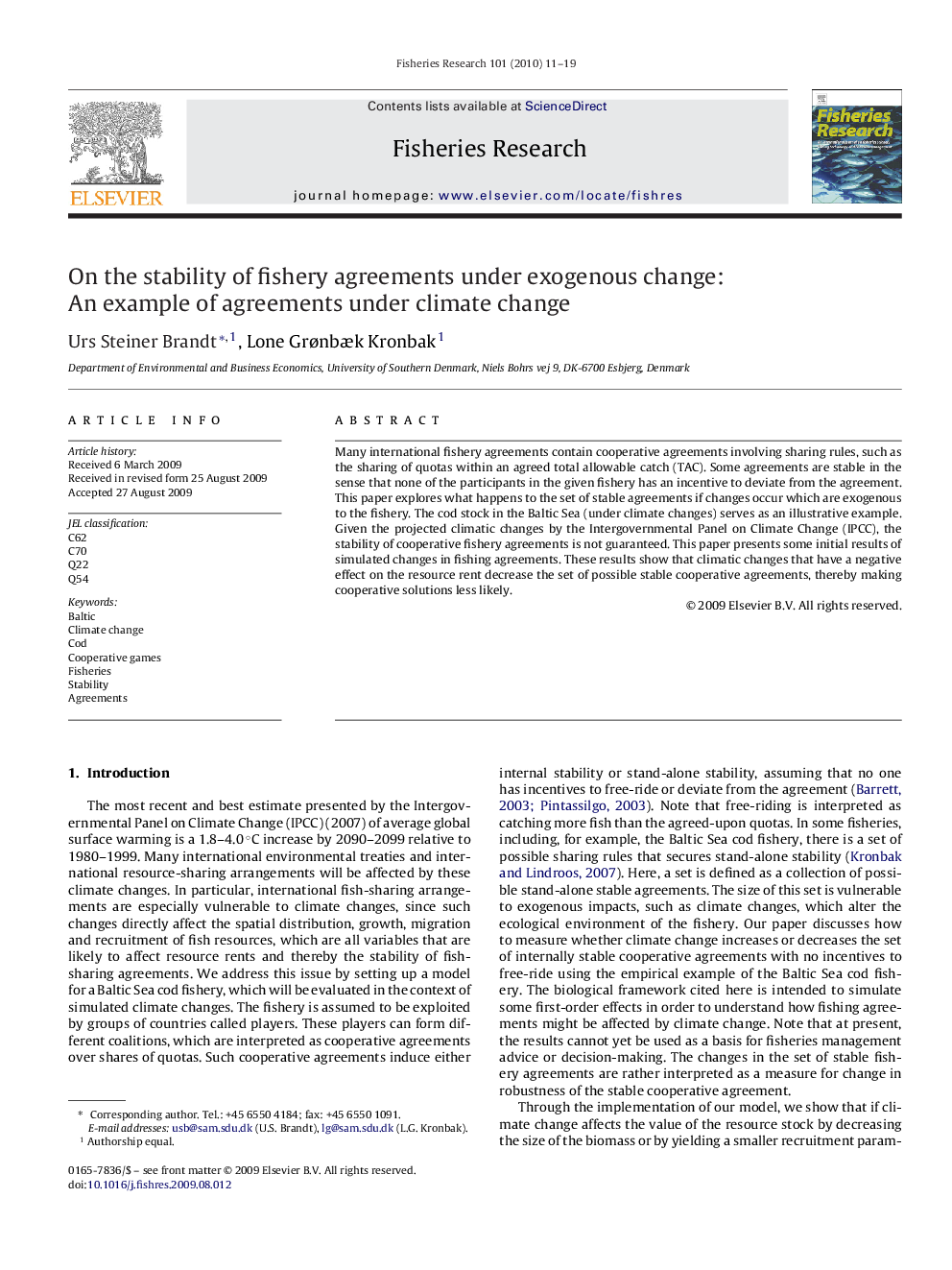| Article ID | Journal | Published Year | Pages | File Type |
|---|---|---|---|---|
| 4543902 | Fisheries Research | 2010 | 9 Pages |
Many international fishery agreements contain cooperative agreements involving sharing rules, such as the sharing of quotas within an agreed total allowable catch (TAC). Some agreements are stable in the sense that none of the participants in the given fishery has an incentive to deviate from the agreement. This paper explores what happens to the set of stable agreements if changes occur which are exogenous to the fishery. The cod stock in the Baltic Sea (under climate changes) serves as an illustrative example. Given the projected climatic changes by the Intergovernmental Panel on Climate Change (IPCC), the stability of cooperative fishery agreements is not guaranteed. This paper presents some initial results of simulated changes in fishing agreements. These results show that climatic changes that have a negative effect on the resource rent decrease the set of possible stable cooperative agreements, thereby making cooperative solutions less likely.
